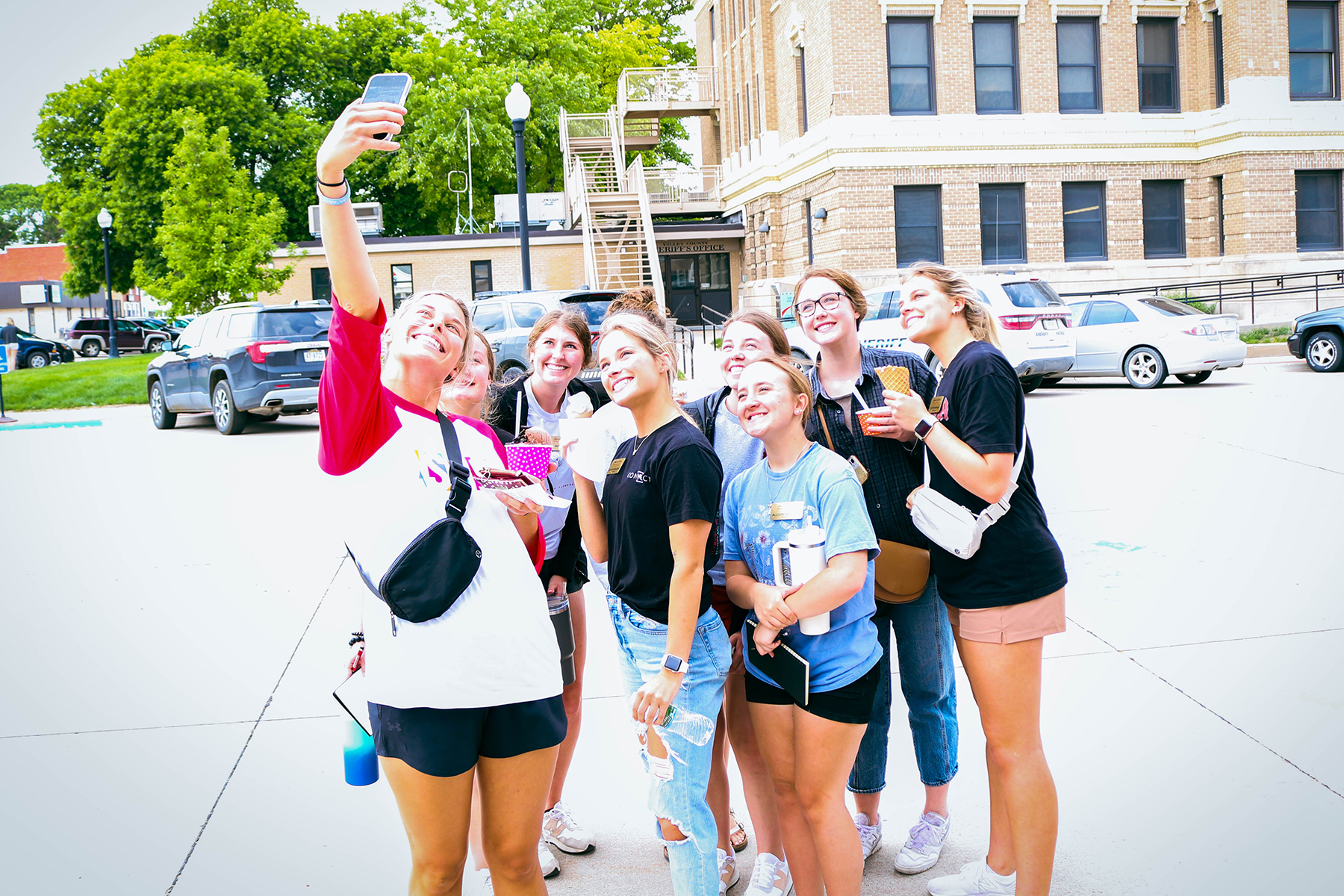When Dakota Cherney, Paige Hansen and TK Hergott left Thayer County for college, they didn’t intend returning anytime soon to that rural southeast Nebraska borderland. Yet “The Thayer County Three,” as they’ve become known in Nebraska economic development circles, have replanted roots there after a unique internship supported by the Nebraska Community Foundation let them see things in a new light.
“Me, TK and Dakota, we all have the same kind of mindset when it comes to our hometowns, we want to give back, contribute and make them a better place,” said Hansen.
The program, called the Hometown Internship, has affected far more than the Thayer trio. In interviews, former Hometown Interns from Fillmore County, Jefferson County, Keith County and elsewhere say they also gained a fresh appreciation for and commitment to home. Some 95 interns have gone through the program during its five years.
Sponsor Spotlight
A Sponsor Spotlight is an occasional feature story, written by an FFP freelancer, focusing on a sponsor of the Flatwater Free Press.
Young adults staying or returning has large implications as small Nebraska towns struggle keeping their best and brightest. As older generations age or die out, challenges of leadership succession and wealth transfer arise, which is why retaining or attracting Gen Zers is critical to long-term prosperity.
Turning rural places from communities of last resort to communities of choice drives the Nebraska Community Foundation, which recently celebrated its 30th anniversary.
President and CEO Jeff Yost has been with NCF since 1998. The nonprofit, founded in 1994, provides resources and training to a statewide network of affiliated funds focused on community building.
NCF launched its paid summer Hometown Internship in 2019, seeking to retain young people as ambassadors in their own communities. College students are matched with affiliated community foundation funds in their home counties and then tasked with doing community-based development projects dreamt up by local leaders or the interns themselves.
Many of these interns mentor peers and assume leadership roles beyond their years, they say. Far more than fetching coffee or running off copies, interns enjoy a seat at the table as well as autonomy.
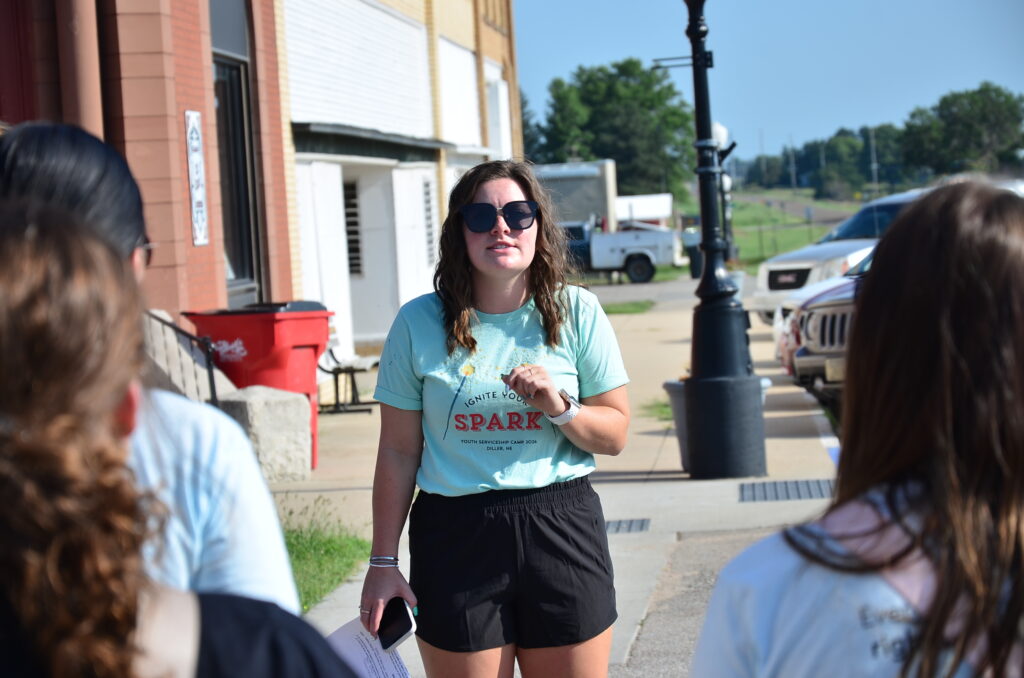
Other small Nebraska communities are now interested in starting their own versions of Diller’s camp. Courtesy photo
“You can generate ideas and run with them,” said recent Diller intern Jadyn Schultis. She co-founded Youth Serviceship Camp to introduce kids to entrepreneurship and leadership principles they apply to community service projects. When a video featured the camp at the 2023 NCF banquet, Schultis was taken aback when some attendees asked how her model could be replicated in their communities. “That’s when I started to realize, wow, what we’re doing actually means something not just for my community but for other communities.”

Further validation came Nov. 14 at NCF’s 30th anniversary banquet in Lincoln when a presentation she made moved many of the 450 true believers from across the state to tears and cheers. Going away to college prepared Schultis to receive Diller in a new way. “I’m a firm believer that when you leave then you can appreciate where you’re from. Being invited back by my community and spending an entire summer doing service where I was raised truly solidified it for me.”

Mariah Sliva interned in her native Shickley. Seeing how things work from the inside and being given free rein to start projects has made her a champion of Shickley and the program. “The thing I like about the internship is that it’s whatever you decide to make it, and as long as what you do is community-oriented it is embraced.”
She and peer intern Hannah Miller teamed to record video interviews with select residents of this “big little town.” Once posted online the videos served as testimonials for others to give to a Shickley fundraising drive.
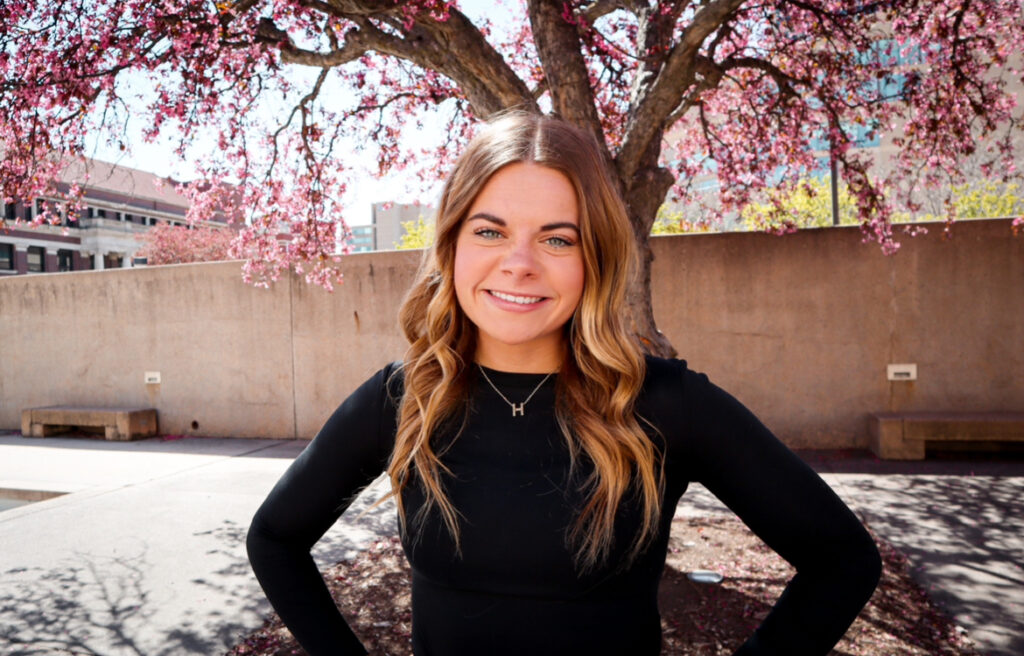
Like Schultis, Sliva is an education major eyeing a teaching job in rural Nebraska. “Wherever I decide to go, I’m planning on being involved because I’ve seen how much impact you can have on a community,” she said.
At the end of the intern experience participants write a “love letter” to their hometown describing how their perceptions changed after doing asset mapping and identifying what makes their hometowns special.
In her letter, Ogallala native Rachel Orth wrote that her image of rural Nebraska changed from drab to vibrant when she got past flyover country stereotypes.
“Where I once thought rural communities were stuck in the past or too traditional, I now see an honoring of the past and the organizations, businesses, and individuals who work to nudge their place closer to the cutting edge,” Orth wrote. “Where I once thought of flat, plain landscapes, I now see brimming rivers, rolling Sandhills with prairie grass and wildflowers, bright blue skies as far as the eye can see …”
Said Yost, “As opposed to an internship where you’re basically doing grunt work, we set up a community internship where young people do a journey of discovery into all the awesomeness in their place … Many of these same interns who had determined they were moving off to the big city have reassessed where they want to live their lives and are returning to their hometowns after college because of this experience.”
Yost, an economist who is equal parts analyst, cheerleader, catalyst and convener, said today’s interns often become tomorrow’s advocates and leaders.
“It’s all about the next generation. What can we do to engage the next generation – not by telling them what they should do but supporting them to discover it for themselves and help them connect it. The conventional wisdom is there’s nothing I can do here (small town) as a professional, but the fact is given technology there’s all sorts of things you can do.”
Dakota Cherney, owner of Stateline Media, virtually serves distant clients from his home office in Chester. While attending Kansas State he had no plans of settling down back home.
“I felt like if I were to return back here I would be considered a failure or not as successful as I could have been.”
His love letter revealed how, until the internship, no one had invited him to return. Once he did he began to view coming home as seizing opportunity. When a local newspaper published his letter a flood of invites followed.
“I had phone calls, texts, letters from people saying, Dakota, we want you to move back here. That really wasn’t the intent but it made me know people actually read and considered it.”
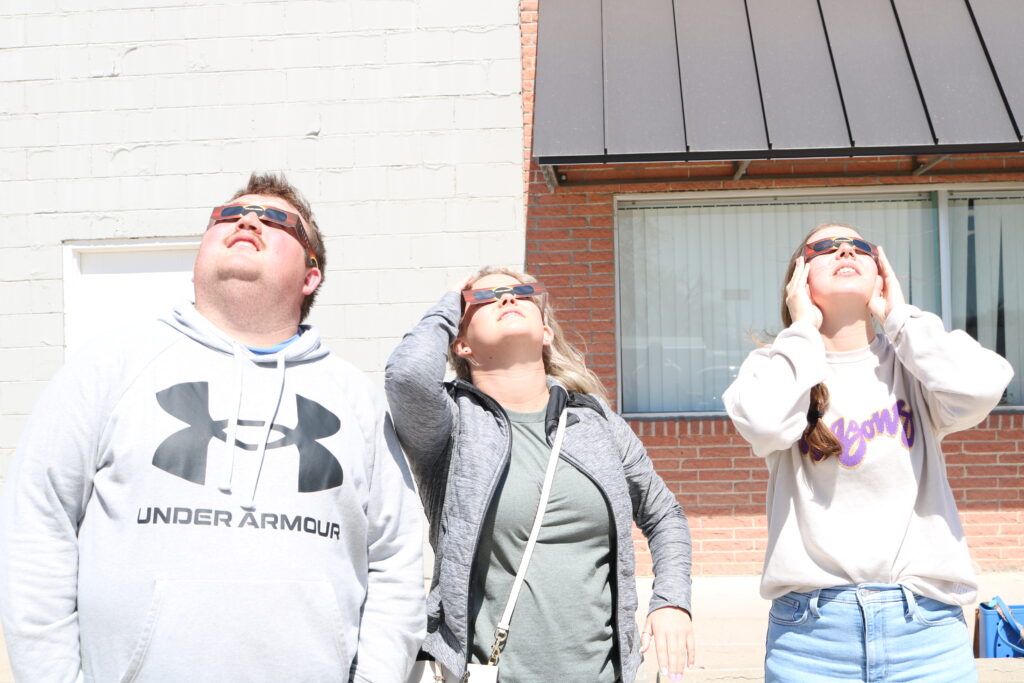
The next summer, he served as the Hometown Intern coordinator, working with interns spread across the state.
“The biggest takeaway was the passion and transformation in that cohort for their communities,” Cherney said “I felt it myself. It inspired me even further to move back home and make something of myself here.”
Another key juncture in his journey came when he began serving on the Hebron Community Fund Advisory Committee. “Maybe for the first time in my life I had adults in the room asking me questions about things,” he said. “They were very open to suggestions … I felt important, needed, valued.”
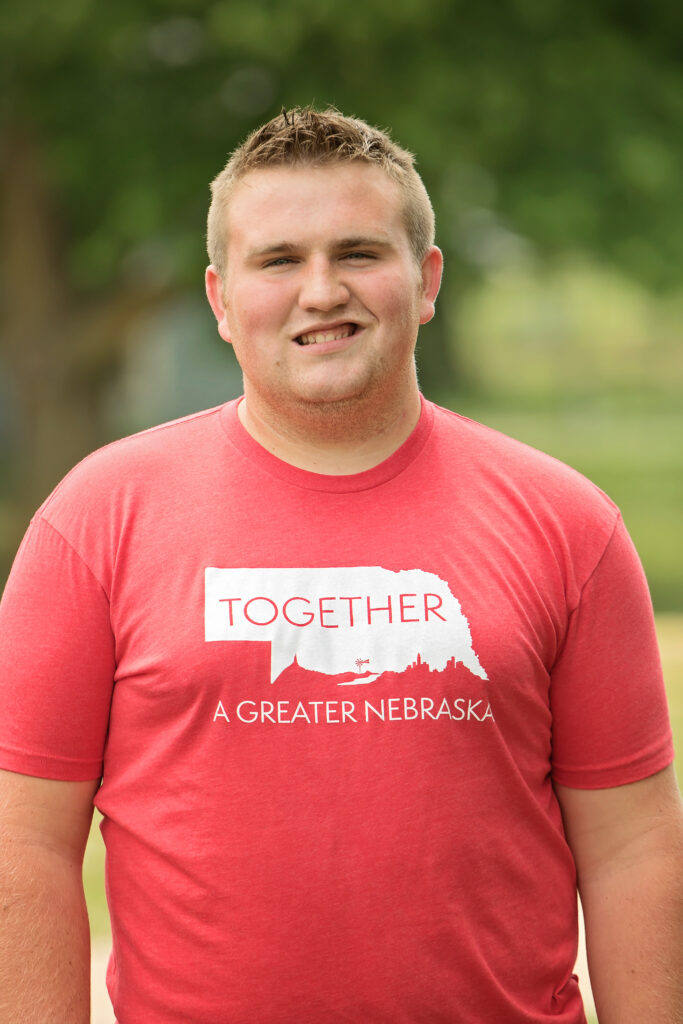
Cherney ended up moving back to Chester, buying a house and “loving it,” he said. He’s now active in the Chester Community Fund and the Chester Community Club, which hosts the town’s annual celebration, Chesterfest.
And he’s encouraged that he isn’t doing it alone. In addition to fellow interns Hansen and Hergott reinvesting themselves there, he knows of high school classmates who’ve returned. One of Cherney’s college classmates from Kansas is seriously considering moving to Chester now, too.
The cost of living is super low, Cherney said. The job opportunities are plentiful. “We must be doing something right,” he said.
NCF surveys its interns after each summer, and a majority say they want to come back to Greater Nebraska, said Chloe Higgins, NCF’s first-ever Hometown Intern, who now works as NCF’s youth engagement specialist.
“And we’ve seen that. The Thayer County Three have returned home, bought homes, are running businesses,” Higgins said. “These are young people making that choice for community. We’re hoping to continue to see that.”
More young adults are needed if small towns are to thrive, Cherney knows. He points out that Chester has “two really active community groups,” but there will need to be “more young adults back to the community to fill those roles” as others age out.
Paige Hansen, another Hometown Intern, said an invitation from the top elected official in her hometown, Deshler Mayor Julie Deepe, brought her back home.

“When you’re young and not really sure what you’re doing with your life yet having someone that isn’t part of your family say, hey, I see value in you and what you could offer our community – you should come back and work – is huge. It opens the door.”
Hansen and husband Grant Hansen eventually bought a home and started their family in Deshler. They reject the notion small towns are dead ends but know others aren’t so easily convinced.
“There’s the stigma of going back to your hometown. Whether you personally buy into that or not I think it always is there in the back of your head. A number of high school classmates went off to school in Lincoln and they’ve stayed there,” Hansen said. “I’m still working on them.”
TK Hergott felt no ambivalence about moving back to her hometown Hebron, where her grandfather served as mayor and her extended family has roots.
“The thing I appreciated most when I came back is that I could dream and I could make a difference …. Now I’m involved in all sorts of things in my community. I’m the youngest one on the Hebron Community Fund. Everyone else is my grandma’s age.”
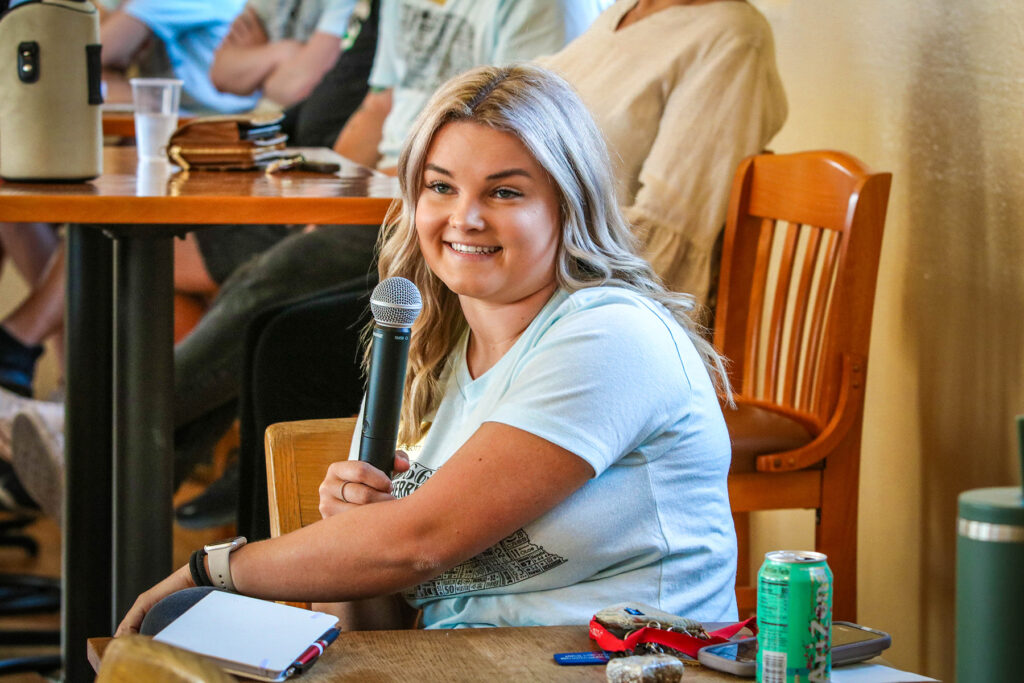
Older volunteers, in Hergott’s experience, can sometimes be resistant to change. “If you want these young people to be involved you have to accept they’re going to have ideas that will change things. But they can’t do it themselves. Everyone has to work together.”
Family legacies are powerful pulls for some interns. Now that Hergott’s done community building work she has even more reason to make Hebron home, where her parents own two businesses. When her folks retire she sees herself and her brother taking over as stewards of these family and community assets.
“My brother and I realize you can’t just let businesses go away, otherwise the town will go away. We want to help keep the town alive.”
NCF works with community-based affiliated funds to develop both resources and resiliency.
These small town funds are led by community volunteers. As endowments grow, fund leaders use this “unrestricted, discretionary capital to create change,” Yost said, “that otherwise may not occur.”
“You could call this margin of excellence or community research and development money,” he said. “This is locally controlled money that can be used to start something new, save something important or adapt to the future.”
Yost sees “symbiosis” between communities and their Hometown Interns.
The community-based funds have done a good job building financial capacity, he said, but now they need to focus on connecting that money with “what the next generation wants (and) dreams of.”
And the discovery process each intern takes to better know and love their hometown is helpful to make impactful grants, because these interns often see the community with fresh eyes, making “community amenities … visible to long-time residents who may take them for granted.”
The net effect: Changing the hearts and minds of both the Hometown Interns and the community’s residents.
There’s no telling where someone’s passion will take them. When Higgins applied for and won a youth philanthropy grant from her hometown Nebraska City’s affiliated fund to do a service project it led to her serving on the fund’s Youth Advisory Council.
“I loved that work. I carried that into college (at UNL). Then the internship really cemented (that) I am passionate about this work and rural Nebraska specifically. It made me realize I loved my community and economic development.”
Higgins is now a catalyst for “young people having real life stakes, involvement and engagement.”
Becky Boesen, NCF community cultural impact specialist who works closely with the intern program, has seen “young people develop into leaders that step into our work but do it better because they’re working with their peers.” She admires that they are relationship-based, care about belonging and are “willing to speak up when they don’t like what’s going on.”
“They have such a strong generational voice. They can shape the blueprint of our future in Nebraska if we invite them to, make space for them, and then get out of their way.”

Rachel Orth believes rural Nebraska’s future is bright so long as small towns work to elevate the voices of younger residents. “It requires just a little intergenerational relationship and trust building between people who want to get things done in communities,” she said.
Prioritizing young people can’t be cosmetic, she said. It must come with autonomy. Ignore or dismiss at your own risk, Orth warns.
“Give young people responsibility, give them agency in their places, and help them see they can make a difference,” she said. “If communities are not investing in that younger generation we will continue to see more young people moving out of the state.”
Given the chance to shape their own communities, she wrote in her love letter, more young people will see “Greater Nebraska isn’t where dreams go to die, it’s where dreams go to thrive.”

